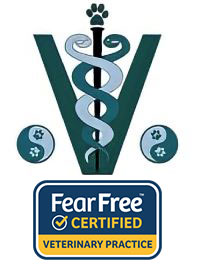Library
-
Transmissible venereal tumors (TVTs), often found in genital areas, are spread through contact with other dogs, most often sexual contact. The tumors are usually cauliflower-like in appearance. Diagnosis and treatment is discussed.
-
Most birds tolerate cars and airplanes very well, and some love the excitement of travel; however, some birds may be stressed by travel. It is not safe for your bird to roam freely in the car while you are driving. Airlines vary in their regulations for travel with birds. Tranquilizers or sedatives should not be used during travel due to risk of reaction. Before making any travel plans, contact the consulate or border authorities of the country you are planning to enter to determine the documentation and medical testing your bird needs to travel. Contact the USDA-APHIS office for more information about international travel.
-
Traveling with your pet can be fun and safe if you plan in advance by finding a pet-friendly hotel. Knowing what you want in a hotel and what the hotel wants from you can simplify the process. And preparing in advance with your pet in mind can make the trip more enjoyable for you and your furry travel companion.
-
Travoprost ophthalmic is a topical medication used to reduce intraocular pressure (pressure within the eye) in dogs with glaucoma and/or ocular hypertension (high fluid pressure in the eye). This medication is used off label in veterinary medicine. Travoprost ophthalmic comes in liquid drop suspension form.
-
Trazodone oral tablets are commonly used off label to treat short-term anxieties or as an adjunctive treatment for behavioral disorders in dogs and cats. Side effects may include sedation, behavior changes, vomiting, and priapism. Patients with heart, kidney, or liver disease or closed angle glaucoma should use this medication with caution.
-
It can take a week to a year to introduce or reintroduce cats—you cannot rush the process. The cats must remain separated unless supervised. If there is steady progress but still specific contexts in which aggression continues, you likely need to consult a behavior professional who can recommend other strategies. Alternatively, the cats may need always to be supervised or separated to prevent conflict at high-risk times.
-
Treatment of thunderstorm phobias and fear of noises such as fireworks usually begins with a behavior modification technique known as systematic desensitization and counterconditioning. Many dogs also benefit from anxiolytic medication.
-
Your cat has allergies. These instructions have been provided by your veterinary healthcare team to help you treat your cat for her specific allergy. The instructions that relate to your cat are checked.
-
Your dog has allergies. These instructions have been provided by your veterinary healthcare team to help you treat your dog for his specific allergy. The instructions that relate to your dog are checked.
-
This handout summarizes the various forms of treatment for cats with asthma and includes a list of treatment instructions for home care. Treatment options include corticosteroids, bronchodilators, and inhaler use. Warning signs for cat owners to watch out for are included.


